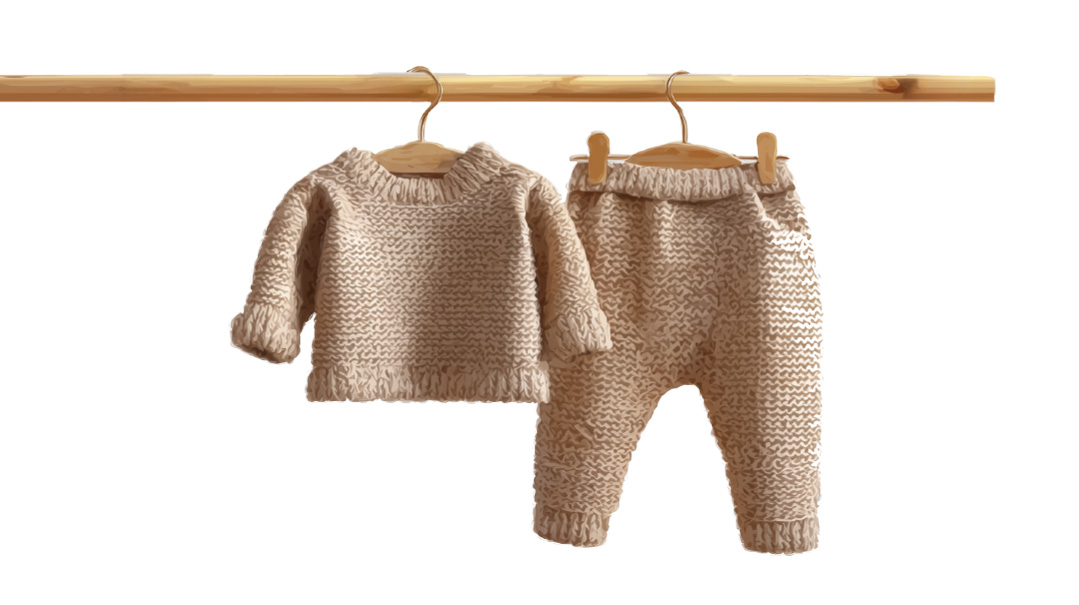Steady in the Silence
| March 22, 2022My husband is quiet, steady — and boring

I should have known this could happen at the bungalow colony.
The bungalow had been a gift. A one-month vacation, at an aunt’s bungalow she wouldn’t be using that summer. I'd prepared myself — for people with a lot more disposable income than us, for the envy that might bubble up when surrounded by people who owned a house and a bungalow when we were a decade in and still renting.
I'd steeled myself to not get too used to it, to remember that it was a one-time treat and hardly a lifestyle. I knew all the warnings that come with bungalow colonies, where there is little privacy and so much freedom.
But the thing that had stayed with me hadn’t been any of the gossip or the materialism or even the calm afternoons spent doing payroll at a laptop on the porch. It had been Shabbos, when all the families had emerged from their bungalows. I’d seen them then — the fathers and sons rolling in the grass in Shabbos shirts (the grass stains, I’d mourned, but their wives had only laughed), the enthusiasm with which the men had learned and squabbled b’chavrusa, the men who’d sloped off together in search of still-warm cholent.
And the nagging doubts had begun, bit by bit.
Avi is… staid. Methodical. The kind of husband who says little and is always reserved, as though he’s deep in his own mind. He’s a good father and husband who does everything exactly how he’s supposed to do it. He works as a rebbi at a high school during the day, learns a seder at night, sings zemiros at the Shabbos table, and takes out the garbage. He remembers birthdays and anniversaries and rarely gets upset. Avi is reliable. He’s dutiful.
He’s… boring. Empty, as though there’s no life to him. The other men are like children out here, loud and entertaining and boisterous, while Avi sits quietly at a table with his Gemara, head bowed and the world shut out. Menachem stands beside him for a while, big-eyed as he prods the page with a chubby little finger, but he loses interest, wandering off to ride on the shoulders of a friend’s father.
And once I’ve made that realization, it’s everywhere. We drive down from the bungalow at the end of July, the girls sunburned and heartbroken to leave behind new friends and Menachem sulky at the sight of familiar concrete and asphalt, and Avi asks, “Are you glad we went?”
“I don’t know,” I say, and I wait — for him to question me, to push a little bit, to wonder how it is that I can find our month away anything but a dream — but Avi never pushes. He only smiles and picks up the first suitcase, carries it up the long staircase into our apartment.
I think nothing, nothing, nothing, and I have to swallow it back before tears spring to my eyes.
It’s selfish to fixate on something like this. There are women with far worse concerns about their husbands, women who have been through issues far less pedestrian. There are women who would consider Avi a prize, and I’m the ungrateful woman who can only see his faults. And so I try, with all my might, to focus on the positives. On how helpful Avi is in the kitchen on Erev Shabbos. On how he helps Racheli and Adina with their Chumash homework, and sits with Menachem to review alef-beis.
He asks me about my day every evening, and he seems to listen when I update him on the minutiae of work at the computer and Gila’s newest words. But when I ask him about his own day, he offers me little information. “It was fine,” he says. Or, at most, “The boys were in rare form today.” I know that his students like him because I’ll occasionally meet a parent who gushes about Rabbi Stern. But that’s all I know. The man they describe is no one I recognize.
I don’t know my husband at all, I’m beginning to realize. And he isn’t interested in changing that.
“Avi,” I say suddenly, late one Friday night. Racheli is the only one who is still up, but she’s absorbed in a book on the couch, and she isn’t paying any attention to us. “Do you want to…?” But I run out of words, at a loss for what to say, for how to connect. And as Avi stares at me, politely befuddled, I know that nothing I say will do the trick.
I can’t force my way into Avi’s life. It’s been ten years. I know plenty about his childhood and his family, but almost nothing about his emotions. Maybe I’d just never thought to ask him about them. He’s always seemed so solid, so practical. Hardly the kind of man who tosses out errant thoughts about his day, who complains about work or talks hashkafah at the Shabbos table. I know that he loves our children, and he seems happy. But that’s all I know.
Avi blinks at me. “Chana? Do you need something?” Always helpful. Always attentive. And absolutely nothing else.
This new awareness of mine is toxic. It’s a fire on paper, eating away at me until I’m limp and dark and ash. I have a husband, but I know nothing about his inner world. I live with a man who has no defining characteristics. I’m filled with a raw longing for a connection that doesn’t exist.
I sit next to him at the Shabbos table and watch my children chatter with him, watch him nod and smile. He says little except divrei Torah and occasional prompts to the rest of us to speak up. He smiles off questions or deflects them. And he bounces Gila on one knee and Menachem on the other, looking for all the world like a model from a picture book — all two-dimensional images and nothing else.
Frustration left unfed is dangerous. Frustration becomes resentment, and resentment is poison. Avi asks me about my day and my answers become as savagely curt as his are quick. I take bitter, empty pleasure in the way that his brow furrows at my comments. Avi heaves the garbage bag down the steps to the front door, and I weave around him to pick up cast-off sneakers, my lips pressed tightly together as I resist the urge to speak, to reach out to someone who is hardly there.
It takes a couple of weeks before Avi stops asking, and I stop offering. When the children are asleep — when it’s just the two of us, alone, without a buffer between us — we’re strangers orbiting each other, never to meet.
I have a friend who’s been gushing about her marriage therapist for years, who insists she can fix anyone. But Avi doesn’t want to be fixed. I don’t even know if he understands what has gone wrong between us. I find him watching me, sometimes, as though I’m a particularly complicated snarl in his Gemara that he has to untangle. But then he sees me watching and averts his eyes, moving to tidy something or speak to a child instead.
I don’t even know if there is anything to fix. Avi doesn’t have any glaring flaws, not like me. I know that I’m too aware of everyone else, too focused on what isn’t instead of what is. If anything, I’m the problem here, and I’m squandering the best thing I’ve ever had because of silly quibbles about feelings and connection.
I’m happy to babysit if you need more date nights, my mother says tactfully after she spends a Shabbos with us. I’m a daughter of divorce — it lurks like a terrifying possibility for me at all times, a decision that could tear our family in two — and my mother must see the strain between us, even if she doesn’t quite know how deep these fault lines are beginning to feel.
I bob my head and promise that we’ll be using her services soon. But there is never a moment that feels right. How can I begin this conversation when any conversation between us has become an anomaly? When even breaking through the oppressive silence between us would be too much of an overture? I can’t bear to be the one to push forward again. To single-handedly save a relationship that Avi doesn’t want.
And so I remain silent, too. I become a dutiful wife, as Avi is a dutiful husband, packing lunchboxes and walking the girls to the bus stop each morning. I take Menachem to his preschool, Gila in the stroller, and then I return to the house and work while Gila burbles around the living room. I cook dinners and help with homework and make sure that the dining room table is clean every evening so Avi can learn there with a chavrusa. And I become quieter, smaller, shrunken by my own dashed expectations and the silence in my house, and I don’t remember who I was before, either.
The girls pick up on some of the tension. They get louder, more anxious, and I’m the worst person in the universe. I’ve done this to them because of my own resentments. I throw myself into motherhood like never before, hover until I’m an annoyance, and Adina says, “Mommy. I just want to do my homework with Tatty,” and looks so frightened — as though she’s violated some unwritten law — that I retreat and regroup.
Even Gila cries more now than she ever has before. Only Menachem seems unchanged. He bounces through the house, wanders downstairs to the porch to watch trucks drive by, and he happily recites his alef-beis to whichever parent is present. I hold him tightly at bedtime, my perfect little boy, and I daven hopelessly that whatever this terrible tension is will never seep into his sunshine.
When he disappears, it’s as though the entire world is obscured in an instant.
At first, I don’t know that he’s gone. I’d picked him up from preschool at three, same as every other day, and brought him inside while absentmindedly leafing through the mail. I’d closed and locked the door downstairs that leads to our apartment, and Menachem had run upstairs ahead of me and found a cheese stick in the fridge to eat while I worked.
He’s a child who’s always happy to play on his own in the afternoons, and I’d heard him jumping on his bed, and found him buried in a pile of books a few minutes later. Gila had gone down for a nap in my bedroom, and I’d been distracted by a crisis at work. My calculations had been wrong, there was a discrepancy in the payroll, and my eyes were glued to my screen until it had been resolved. I’d breathed a sigh of relief and thought to check on Menachem.
His room is empty. “Menachem?” I call, peering into the bathroom and then the girls’ bedroom. Nothing. I crack the door open to my bedroom, slipping inside and searching the room. Gila sleeps peacefully, but there is no Menachem curled up on the bed, no Menachem in the closet playing hide-and-seek with himself.
I feel a sudden stab of fear, the unique dread that every parent lives with. It can’t be. I must have missed him in the living room. Maybe he’d fallen asleep on the couch, exhausted from a long day at school. Maybe he’s just ignoring me, absorbed in a game.
But still, just to be sure, I step down to the landing that leads to the front door — and I freeze.
The door is wide open.
There’s a little stepstool next to the door. In my mind’s eye, I can see Menachem, walking down the steps with the stool clutched against his chest, determined to unlock the front door and watch the trucks. But the porch is empty. Menachem isn’t there. He isn’t on the lawn, on the sidewalk, in the little patch of grass behind the house.
Menachem is missing.
A sound rips itself from my throat, ragged and shrill. I run back upstairs, caught between two children, and I think to bang on the door of my downstairs neighbor. She takes one look at my face and says, “What do you need?”
“Gila,” I choke out, pointing upstairs, and then I take off down the block.
Menachem is nowhere to be found. I walk into neighbors’ backyards, run back and forth between corners, and feel my pulse quicken every time I see a car speed down my street. I knock on doors, but no one has seen him, a five-year-old wandering alone with a thumb in his mouth. My heart is pounding like a drumbeat in my ears, and I’m so lost, so frantic—
I seize my phone and press the button that will expose my shame and terror more than any other. The number I can’t avoid calling anymore. I’m whispering Tehillim as the phone rings, as more neighbors begin to spill out of their houses to help the search effort. It’s winter, and it will be dark soon.
Avi picks up. “Chana?” he asks, sounding startled. I don’t usually call him during the day. I walk quickly, my voice choked from the cold and the fear. “What’s wrong?”
“Menachem is missing,” I gasp, and the line goes dead.
Avi arrives five minutes later. “Chana,” he says, and there’s none of the familiar tension in his voice. “I called Shomrim. They’re on their way. Have you spoken to any of Menachem’s friends’ parents?”
“Yes. Nothing. They haven’t seen him. No one saw him, except one woman who thinks he was playing with a tricycle on her lawn for a few minutes.” I point, my hand shaking, and Avi looks at me and then my hand.
“Stay here,” he says, and he goes into the house. He emerges with my coat in his hand, and he holds it out to me. “You’ll get sick out here,” he says, and I stare at him in bewildered outrage.
“I’ll get sick? I’ll get sick? Menachem is missing! How can you be so—?” I stop myself, furious and lost at his reliable practicality. “Menachem is—”
“I know,” Avi murmurs. “Let’s think.” Think, as though this is another problem that can be resolved by a cerebral moment that is his alone. I’m furious with him in an instant, angry with him when I’ve never been able to feel more than frustration or resentment. I want to scream, I want to sob, I want to run down every block in the neighborhood shouting Menachem’s name. I don’t want to think.
“You’re unbelievable.” My voice is transformed by fear and anger. I don’t care. At least now, he could try to… “Don’t you care?” I demand. “Don’t you have a single emotion in your…? Menachem!” I say hopelessly, and now I’m sobbing, breaking down with the force of my pain.
“Of course I care,” Avi says quietly, and his voice sounds suddenly strangled. “How can you think that I don’t—” He stops short, as conflict-averse as ever, and he says, “The playground. Have you checked there?” He’s walking quickly, and I have to hurry to keep up with him. “His morah. I’d call her.”
I call her as Shomrim arrive, and then I have to explain myself all over again. I’m suddenly defensive — I hadn’t known, how could I have missed it, he must have walked right past me — and I’m sure that they’re all judging me.
“He’s a quick kid,” Avi says to them. “Quiet when he wants to be. But he’d only go out like this if he had a reason.” He shakes his head, and I know what we’re both thinking.
Unless Menachem hadn’t gone so far on purpose. Unless he’d been found, and this nightmare is only just beginning.
A flood of boys arrive, teenagers in white shirts and jackets with earnest determination to help Rabbi Stern find his son. I watch the way Avi speaks with them, how he becomes authoritative and confident in their presence. They listen to every word, disperse in a hurry, and fan out through the neighborhood. Avi is louder with them, less reserved, and I feel a slight spark of hope, bright like a flame fed by my Tehillim.
I walk aimlessly around the corner, peer down driveways and whisper prayers to myself. I squint through the dimness of the dusk as my phone pings with text messages from family, from well-meaning friends who want to help, with mass texts asking for our help to find a missing boy.
I’ve seen those messages so many times, have davened for someone else’s child, but now it’s just me and my Tehillim, alone in the grief and horror.
It’s dark, and the neighborhood is alight, the streets full as the search intensifies. I don’t know how long it’s been. My mother arrives, stays with a pale Racheli and a sobbing Adina and holds Gila while I hold my Tehillim. I can feel eyes on me, the tragic figure of a mother without her son.
And, beside me, my husband.
He matches my pace as I walk up and down the block, peering into dimly lit backyards, and he doesn’t speak. He whispers silent prayers of his own, and he doesn’t push or make suggestions or do anything but walk beside me. Staid, steady Avi. My Avi, whose greatest crime was that he’s only a quiet support, who listens and listens even when we say nothing at all. Abruptly, everything that had made me so angry about him is what makes me calm now, what helps me breathe and makes me feel, for the first time tonight, as though I’m not alone.
“I’m so sorry,” I manage, because this is my fault. “I did this.”
“No,” Avi says, and he sounds solid, not only staid. Firm, not only reserved. “Menachem was inside. You had no idea that he’d make a run for it.”
“I should have seen him. I was so busy with a few stupid issues at work—” I want to throw something. Myself, maybe, into something hard enough to hurt. Anything that will give me peace. “I should have seen him,” I say again, my voice cracking.
But Avi is quiet again, and I see those watchful eyes on me, those thoughtful eyes brimming with an inner life Avi never explains. “Stop,” I say desperately, miserable and furious again. This time, it is with myself. “Stop looking at me like that—”
“I think I know where Menachem is,” Avi says suddenly.
My heart is racing as we get in the car, ignoring the questioning looks from the neighbors stationed at the house. My feet tap against the floor as Avi drives, my fingers digging into my knees below the rough fabric of my skirt. I’m aware of everything and nothing, of the lights speeding by in the dark and the comforting cadence of Avi’s breathing. Once, it had felt like another reminder of the hostile environment of our apartment. Today, it’s a reminder that I have a partner in this.
We park in a bus zone in front of Avi’s school, but it doesn’t matter. The building is nearly empty, almost every bochur in the yeshivah out searching for our son. The few who remain are thronged outside, and they rush to Avi with offers and ideas. Avi speaks to them patiently before he sends them off, and they hang onto his every word as I watch with rising urgency and bewilderment. Avi— no, Rabbi Stern— is someone I’m only just beginning to know.
The halls are empty, and Avi leads me to the second floor, to an office I’ve only been in once or twice before. Menachem has been here more often, has spent more than a few days in school with his Tatty as a special treat. “Do you really think he’s here?” I ask, my voice trembling. I don’t know what might shatter if that door opens and the room is empty.
Avi’s voice is uncharacteristically strained. “I have to,” he says.
He pushes the door open — and there he is. Menachem is curled up on Avi’s chair, a lollipop clenched in his hand and his free thumb in his mouth, fast asleep. I let out a strangled noise and run toward him, and Menachem yawns and stares at me, his brown eyes inquisitive.
“Mommy?” he says.
I stop short. There is something almost sacred about this moment, like we have ventured into a dream that can disappear in an instant. I’m afraid to move forward, afraid to say anything that might frighten away the illusion of my son, safe and sound in his father’s chair. It’s Avi who speaks, his quiet voice calm and sure. “How did you get here, Menachem?”
Menachem squints around, bewildered for a moment before he nods vigorously. “Mommy was upset at the computer,” he says. “Tatty always helps when Mommy is upset.” He beams at us. “So I went to get Tatty. You weren’t here,” he says to Avi, accusing, and I can’t bear it anymore.
I move forward, gather my baby boy into my arms, and Avi holds him tightly, too, the three of us frozen in place in this impossible gift from Hashem. Menachem is safe, had walked the ten minutes to Avi’s school and miraculously avoided every car. He’s been safe, secure, all along. “Menachem,” I chant. “Menachem, Menachem—”
He clings to me, and he cries without knowing why he’s upset, while my emotions feels as though they might engulf us both in a violent wave. Avi is blinking away tears, too, his eyes shining as he looks at us, and I know that I’ve seen that expression on his face before. I’ve seen it, and I’ve never understood it. Not until now.
I see him as though I’m looking at him for the first time in months, with fresh eyes that appreciate instead of wondering what I’m missing. He looks back at me, and I can read his expression better than I’d thought I was capable of. Relief, of course, but emotions that I hadn’t expected: Uncertainty, the tentativeness that comes with this strange little step forward for the two of us. And determination, a strong desire to make this work. Staid. Maybe a better word is steady. He doesn’t give up. It’s what makes him a good rebbi, I know now. It’s what makes him a good father and a good husband.
Avi regards me steadily, until I’m almost anxious from the silence, and then he murmurs, “We found him.” It’s the first thing that has felt like a we in a long time, and I bask in the confidence that comes from steady and believe him, with all my heart. Nothing has really changed, nothing that can explain this seismic shift happening around me right now.
We still have so much to rebuild, and we need to talk, to work through this more once we get home, and set the neighborhood and children at ease. But there is something to preserve here, something that I’m beginning to understand still exists: in Avi, in our marriage, and in what we can find in each other.
I look at Avi over Menachem’s little head, and something lingers between us that isn’t tense or fraught, but the peace and affection of family.
(Originally featured in Family First, Issue 786)
Oops! We could not locate your form.







